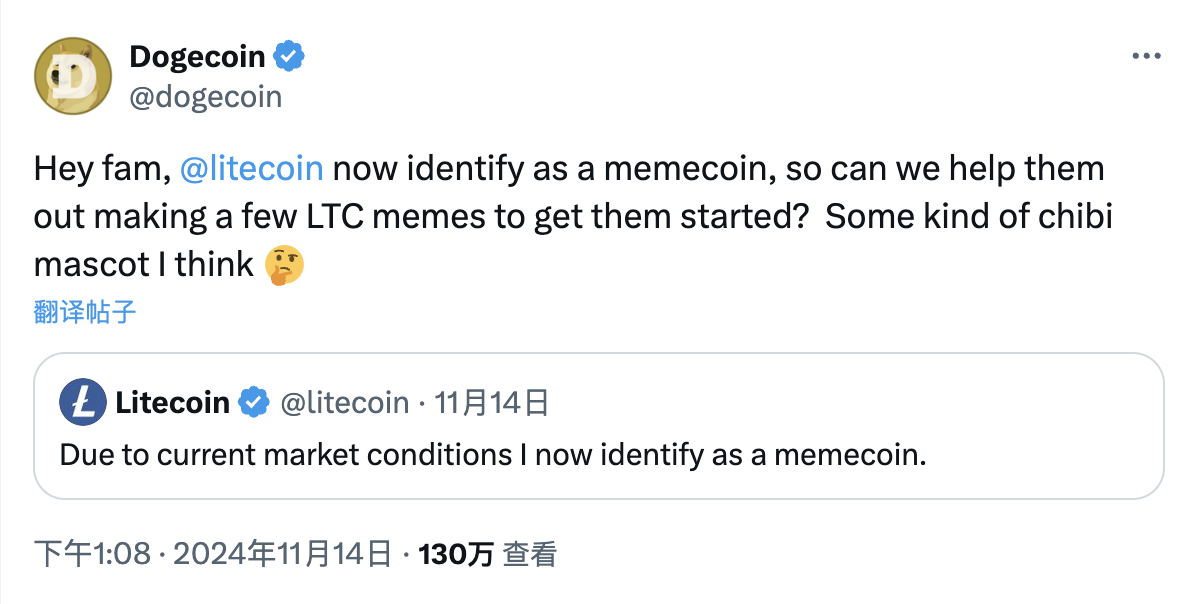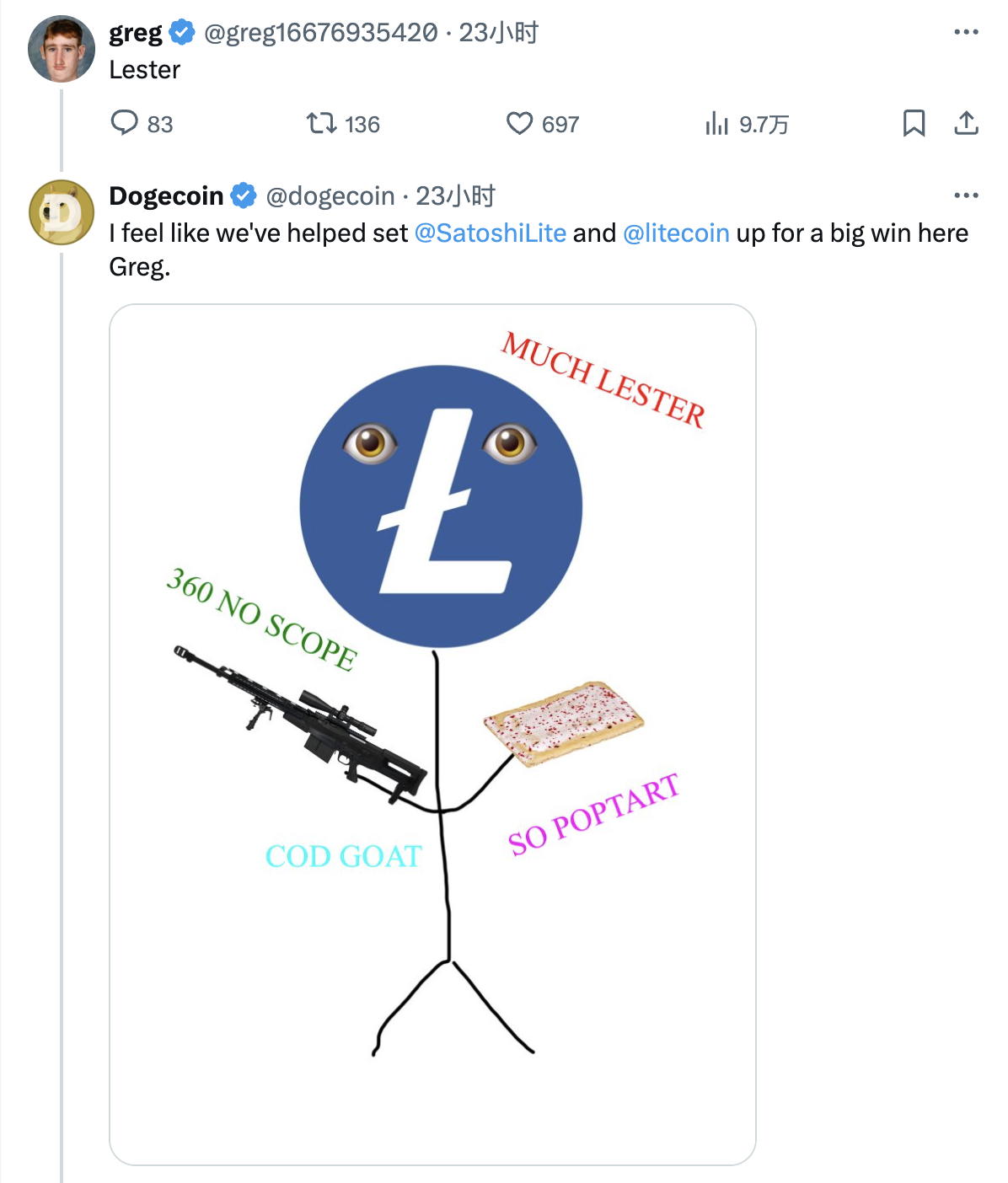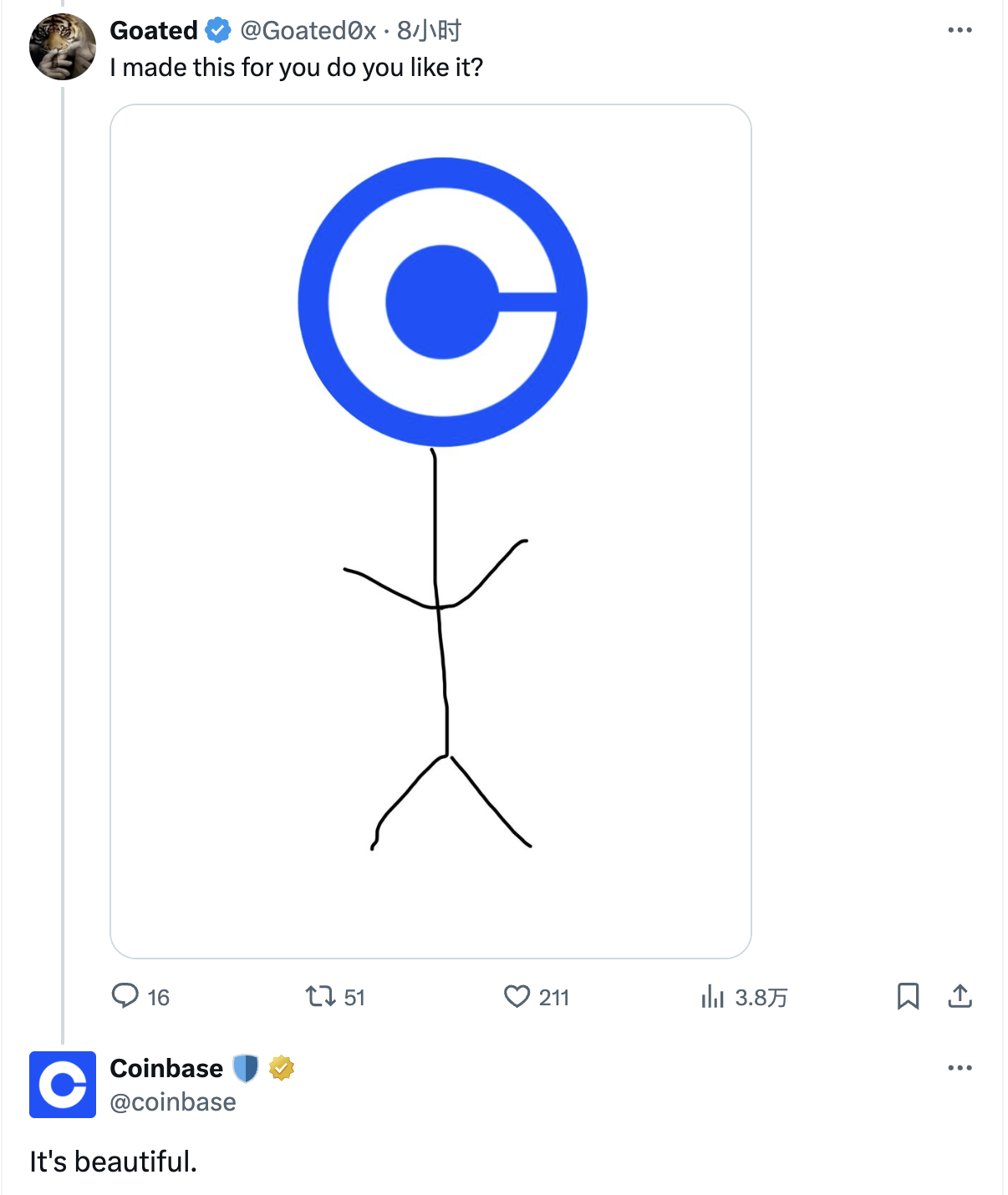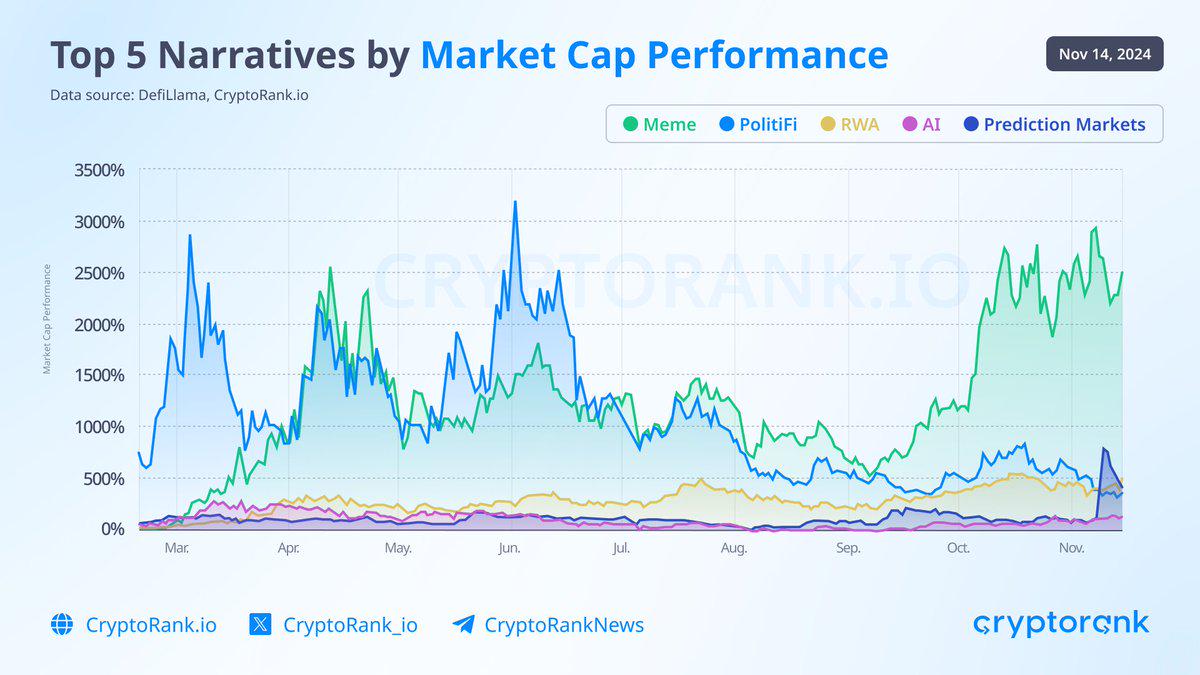Author: Nancy, PANews
“Given the current market conditions, it is now recognized that LTC is a MEME coin.” After the old mining coin Litecoin took the lead in speaking out recently, it quickly set off a marketing trend around MEME, and many institutions and projects followed suit.
Crypto projects such as Litecoin position themselves as a mockery of MEME, which actually reveals a phenomenon in the current crypto market: many projects that once used complicated and gorgeous technical terms as selling points have actually become another form of MEME after no one is interested in them.
Litecoin turns into MEME? Self-deprecating tweets trigger market trend
"Bitcoin is gold, Litecoin is silver" was once a slogan passed down by word of mouth in the industry, and it also symbolized the status of Litecoin in the past. However, in this round of bull market, Bitcoin has repeatedly set new highs, but Litecoin has failed to keep up with the rise. Unexpectedly, after Litecoin self-deprecatingly called itself MEME coin, it stimulated a short-term rise in price, and also brought new topics and attention to this old project.
On November 15, the official Litecoin X account posted a message saying, "Given the current market conditions, it is now recognized that LTC is a MEME coin." After this tweet was released, in addition to a short-term boost in prices, it also aroused market attention and heated discussions. In the comment section of this tweet, many community users and projects "offered suggestions" for it, and a number of MEME coins were derived.

Among them, DOGE, the leading MEME coin brand, personally designed the MEME mascot image for Litecoin, and the internet celebrity Greg, who often interacts with Musk, also named it "LESTER". Greg is also recognized as the new "CEO" of DOGE.

Subsequently, the image of LESTER quickly spread in the community. According to DEX Screener data, LESTER's market value soared to nearly $100 million within less than a day after its launch, which is enough to show the market's enthusiasm for participation.
At the same time, various projects, institutions and big Vs such as Polygon, Yearn.finance, TRON DAO, Manta Network, IoTeX, OKX Wallet, Renzo and Franklin have followed the format of Litecoin's tweets and made memes.
It is worth mentioning that in the interaction between Coinbase and Litecoin, the community also designed a related MEME image for it and obtained official recognition. The related MEME also received a certain amount of market attention.

Behind the rise of MEME culture, traditional crypto projects are in urgent need of a breakthrough
MEME culture, which is endowed with various interesting labels and narratives, is profoundly changing the way the crypto market plays. Although such assets themselves lack substantial technological innovation, their value is also rapidly soaring through extensive hype on social media, promotion of community culture, and amplification of network effects.
According to CoinGecko data, as of November 15, the market size of MEME has exceeded 140 billion US dollars. Among them, in the past 24 hours, among the top 20 crypto market transactions, in addition to mainstream assets such as Bitcoin and Ethereum and stablecoins such as USDT, 7 are MEME coins, which also means that such projects occupy a large amount of market liquidity.
Not only that, according to CryptoRank data, among the top five narrative tracks in terms of market value performance since the beginning of the year, MEME coins have significantly outperformed RWA and AI assets in terms of returns. The equally outstanding PolitiFi assets are actually also politically themed MEME.

With the MEME king Musk’s “strike” again, driving the strong rise of DOGE, Pnut and other products, as well as the US Internet broker Robinhood listing PEPE, the MEME sector is gaining more market attention and participation. Musk also recently commented that he agreed with the idea that “MEME will be popular in the next four years.”
Moonshot, an application focusing on MEME coin trading, recently disclosed that the platform's fiat currency inflows have set a new record, and non-crypto native users are pouring in. Top trader Eugene believes that the recent breakthrough of DOGE means that the upper limit of the market value of all other MEME coins will also rise proportionally. The previous valuation of $1 billion was the upper limit, and now it is just the starting point. Crypto KOL Murad even bluntly stated that millennials and Generation Z cannot afford to buy houses, so they will turn to buy MEME coins, and predicted that the former market is in the early stages of the MEME coin super cycle, and 7-8 "digital tribes" with a market value of more than $20 billion will be born.
In sharp contrast, many crypto projects that once enjoyed a moment of fame with their technological innovation and promising prospects have fallen into an embarrassing situation of being ignored due to the dual impact of a cooling market and intensified competition. More seriously, many crypto projects are generally facing the challenge of selling pressure brought about by the "unlocking period". The selling of a large number of early investors and VCs has not only exacerbated the continued decline in project prices, but also severely hit investor confidence. The withdrawal of market funds and the depletion of user liquidity have also made the continued development of crypto projects more difficult. To some extent, these crypto projects that were once highly anticipated are gradually becoming MEMEs wrapped in a technical shell.
It is undeniable that MEME is rapidly reshaping investor behavior and market ecology through the amplification effect of social media and the emotional resonance of the community. Self-deprecating tweets such as Litecoin also reflect that relying solely on technological innovation and long-term planning can no longer ensure the continued steady growth of crypto projects.















